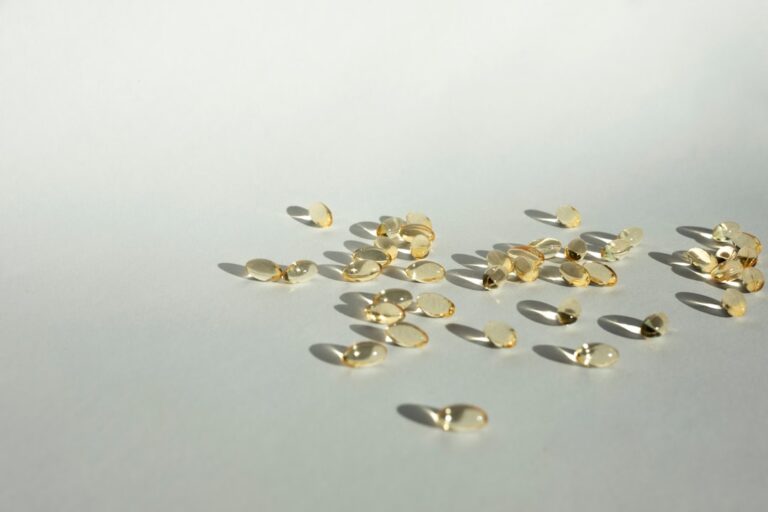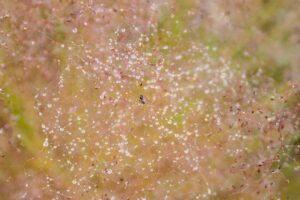Dandruff is a common scalp condition that affects millions of people worldwide, often leading to discomfort and embarrassment. The primary cause of dandruff is an overgrowth of a yeast-like fungus called Malassezia, which thrives on the natural oils produced by the scalp. This fungus can lead to an imbalance in the scalp’s ecosystem, resulting in increased cell turnover.
As dead skin cells accumulate, they can clump together and become visible flakes, often exacerbated by factors such as dry skin, sensitivity to hair products, or underlying skin conditions like psoriasis or eczema. In addition to fungal overgrowth, environmental factors can also contribute to the development of dandruff. Changes in weather, particularly during colder months when humidity levels drop, can lead to a dry scalp.
Furthermore, infrequent washing of hair can allow oil and skin cells to build up, creating an ideal environment for dandruff to flourish. Stress and hormonal changes may also play a role, as they can affect the body’s immune response and alter the balance of microorganisms on the scalp. Understanding these causes is crucial for effectively addressing and managing dandruff.
Key Takeaways
- Dandruff can be caused by a variety of factors including dry skin, oily skin, and certain skin conditions.
- There are two main types of dandruff: dry dandruff and oily dandruff, each requiring different treatment approaches.
- Choosing the right shampoo with active ingredients like zinc pyrithione or ketoconazole is crucial in managing dandruff effectively.
- Anti-dandruff treatments such as scalp masks and exfoliating scrubs can be incorporated into your haircare routine to combat dandruff.
- Natural remedies like tea tree oil and aloe vera can help alleviate dandruff symptoms and promote a healthier scalp.
Identifying the Different Types of Dandruff
Dandruff is not a one-size-fits-all condition; it manifests in various forms that can be categorized based on their characteristics and underlying causes. The most common type is dry dandruff, which is typically associated with a dry scalp. This type often presents as small, white flakes that are easily shed from the scalp and may be accompanied by itching.
Individuals with dry skin or those living in arid climates are more prone to this type of dandruff. On the other hand, oily dandruff is characterized by larger, yellowish flakes that cling to the scalp and hair. This type is often linked to an overproduction of sebum, which can create a greasy environment conducive to fungal growth.
Oily dandruff may also be associated with conditions such as seborrheic dermatitis, where inflammation and redness accompany the flaking. Recognizing the type of dandruff one has is essential for selecting appropriate treatments and managing symptoms effectively.
The Importance of Choosing the Right Shampoo

Selecting the right shampoo is a critical step in managing dandruff effectively. Not all shampoos are created equal; some are specifically formulated to combat dandruff while others may exacerbate the problem. Anti-dandruff shampoos typically contain active ingredients such as zinc pyrithione, ketoconazole, or selenium sulfide, which target the underlying causes of dandruff by reducing fungal growth and controlling inflammation.
It is essential for individuals to read labels carefully and choose products that align with their specific type of dandruff. Moreover, it is important to consider individual hair types and sensitivities when choosing a shampoo. For instance, those with dry hair may benefit from moisturizing formulas that provide hydration while addressing dandruff.
Conversely, individuals with oily hair may prefer clarifying shampoos that help remove excess oil without stripping the scalp of its natural moisture. Experimenting with different products may be necessary to find the right balance that alleviates dandruff while maintaining healthy hair.
Incorporating Anti-Dandruff Treatments into Your Haircare Routine
| Treatment | Benefits | Frequency |
|---|---|---|
| Anti-dandruff shampoo | Reduces dandruff, soothes scalp | 2-3 times a week |
| Scalp exfoliation | Removes dead skin cells, promotes circulation | Once a week |
| Tea tree oil treatment | Antibacterial properties, reduces itchiness | Once a week |
Incorporating anti-dandruff treatments into a regular haircare routine can significantly improve scalp health and reduce flaking. It is advisable to use anti-dandruff shampoo at least twice a week, allowing it to sit on the scalp for several minutes before rinsing thoroughly. This practice ensures that the active ingredients have sufficient time to penetrate the scalp and exert their effects.
Additionally, alternating between different types of anti-dandruff shampoos can prevent the scalp from becoming resistant to any one treatment. Beyond shampooing, individuals may also consider using leave-in treatments or scalp serums designed to target dandruff. These products can provide additional relief by soothing irritation and maintaining moisture levels on the scalp.
Regularly massaging the scalp during washing can also promote blood circulation and enhance the effectiveness of treatments. By establishing a consistent routine that includes these practices, individuals can take proactive steps toward managing their dandruff effectively.
Natural Remedies for Dandruff
For those seeking alternative solutions, natural remedies for dandruff have gained popularity in recent years. Ingredients such as tea tree oil, apple cider vinegar, and coconut oil are often touted for their antifungal and soothing properties. Tea tree oil, in particular, has been shown to reduce fungal growth and alleviate itching when diluted and applied to the scalp.
Apple cider vinegar can help restore the scalp’s pH balance and reduce flakiness when used as a rinse after shampooing. Coconut oil is another versatile remedy that not only moisturizes the scalp but also possesses antimicrobial properties. Massaging warm coconut oil into the scalp before washing can help loosen flakes and provide hydration.
While these natural remedies may not work for everyone, they offer a gentle alternative for those looking to complement their anti-dandruff regimen with holistic approaches.
Tips for Managing Dandruff Flare-Ups

Managing dandruff flare-ups requires a combination of proactive measures and lifestyle adjustments. One effective strategy is to maintain a consistent hair-washing schedule that suits individual needs. For some, washing hair daily may help control oil buildup and reduce flaking, while others may find that washing every few days is sufficient.
It is essential to listen to one’s scalp and adjust washing frequency accordingly. In addition to regular washing, individuals should be mindful of their choice of hair products. Avoiding harsh chemicals and fragrances can prevent irritation that may worsen dandruff symptoms.
Opting for gentle, sulfate-free shampoos and conditioners can help maintain scalp health without stripping away essential oils. Furthermore, incorporating stress-reducing practices such as yoga or meditation can contribute positively to overall well-being and potentially mitigate flare-ups.
Dietary Changes to Combat Dandruff
Diet plays a significant role in overall skin health, including the condition of the scalp. Certain dietary changes can help combat dandruff by promoting a balanced environment for hair growth. Foods rich in omega-3 fatty acids, such as salmon, walnuts, and flaxseeds, are known for their anti-inflammatory properties and can help maintain healthy skin.
Additionally, incorporating foods high in zinc—such as pumpkin seeds and legumes—can support immune function and reduce fungal overgrowth. Hydration is another crucial aspect of dietary management for dandruff. Drinking plenty of water helps keep the body hydrated and supports skin health from within.
Limiting processed foods and sugars may also be beneficial, as these can contribute to inflammation and exacerbate skin conditions. By adopting a balanced diet rich in nutrients that promote skin health, individuals can take significant strides toward managing their dandruff effectively.
The Role of Stress in Dandruff
Stress is often an overlooked factor in the development and exacerbation of dandruff. When individuals experience high levels of stress, it can trigger hormonal changes that affect oil production on the scalp and lead to increased flakiness. Moreover, stress can weaken the immune system, making it more challenging for the body to combat fungal infections like those associated with dandruff.
To mitigate stress-related flare-ups, individuals may benefit from incorporating relaxation techniques into their daily routines. Practices such as mindfulness meditation, deep breathing exercises, or engaging in hobbies can help reduce stress levels and promote overall well-being. By addressing stress as a contributing factor to dandruff, individuals can take a holistic approach to managing their condition.
Seeking Professional Help for Severe Dandruff
In cases where over-the-counter treatments fail to provide relief or when dandruff becomes severe, seeking professional help is advisable. Dermatologists specialize in skin conditions and can offer tailored solutions based on individual needs. They may prescribe medicated shampoos or topical treatments containing stronger active ingredients that target persistent dandruff effectively.
Additionally, dermatologists can assess whether underlying conditions such as psoriasis or seborrheic dermatitis are contributing to severe dandruff symptoms. By identifying any underlying issues, they can recommend appropriate treatments that address both the symptoms and root causes of dandruff. Seeking professional guidance ensures that individuals receive comprehensive care tailored to their specific situation.
How to Style Your Hair to Minimize the Appearance of Dandruff
While managing dandruff is essential for long-term relief, styling choices can also play a role in minimizing its appearance in day-to-day life. Opting for hairstyles that draw attention away from the scalp can be effective; for instance, wearing hair down with soft waves or curls can help conceal flakes while adding volume. Additionally, using hair accessories like headbands or scarves can provide a stylish way to cover up any visible flakes.
Choosing hair products wisely is equally important when it comes to styling hair with dandruff concerns. Lightweight styling products that do not weigh down hair or contribute to buildup on the scalp are ideal choices. Furthermore, avoiding tight hairstyles that pull on the scalp can prevent irritation and discomfort associated with dandruff flare-ups.
Embracing Confidence and Self-Care Despite Dandruff
Living with dandruff can be challenging; however, embracing confidence through self-care practices is vital for maintaining a positive outlook. Individuals should remember that they are not alone in facing this common condition; many people experience similar challenges with their scalps. Focusing on self-care routines—whether through skincare practices or engaging in activities that bring joy—can foster a sense of empowerment.
Moreover, cultivating self-acceptance is crucial in navigating social situations where dandruff may be noticeable. Building confidence through positive affirmations and surrounding oneself with supportive friends or family members can help individuals feel more at ease despite their condition. Ultimately, prioritizing self-care and embracing one’s unique beauty allows individuals to shine brightly regardless of any temporary challenges they may face with dandruff.
If you’re gearing up for a big party and worried about dandruff, you’re not alone. Many people seek quick and effective solutions to ensure their hair looks its best for social events. While there are numerous remedies available, it’s essential to find one that works for you. Interestingly, the relationship between personal grooming and self-expression can be likened to the connection between fashion and music. Both are timeless bonds that allow individuals to showcase their unique style and confidence. For more insights into how these elements intertwine, you might find this article on the relationship between fashion and music quite enlightening.
FAQs
What is dandruff?
Dandruff is a common scalp condition that causes white or grey flakes of skin to appear on the scalp and in the hair. It can be itchy and embarrassing for those who have it.
What causes dandruff?
Dandruff can be caused by a variety of factors, including dry skin, sensitivity to hair products, fungal infections, and certain medical conditions such as eczema or psoriasis.
How can I treat dandruff before a party?
There are several effective treatments for dandruff, including over-the-counter shampoos containing ingredients like zinc pyrithione, selenium sulfide, ketoconazole, or coal tar. You can also try natural remedies like tea tree oil or apple cider vinegar.
How often should I wash my hair to prevent dandruff?
It is recommended to wash your hair at least every other day with a dandruff-fighting shampoo to help prevent dandruff. However, everyone’s hair is different, so you may need to adjust your washing routine based on your individual needs.
Can diet affect dandruff?
Some research suggests that certain dietary factors, such as a diet high in sugar and unhealthy fats, may contribute to dandruff. Eating a balanced diet with plenty of fruits, vegetables, and healthy fats may help improve the overall health of your scalp.













